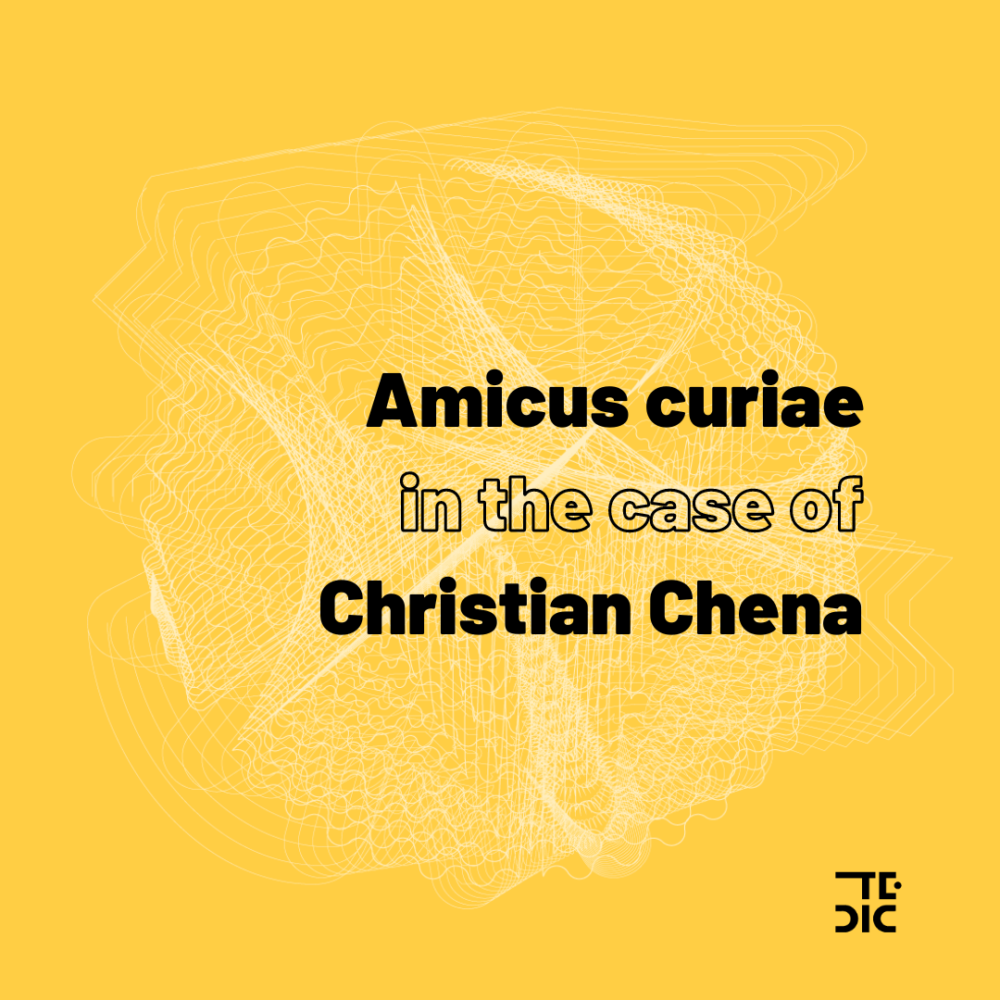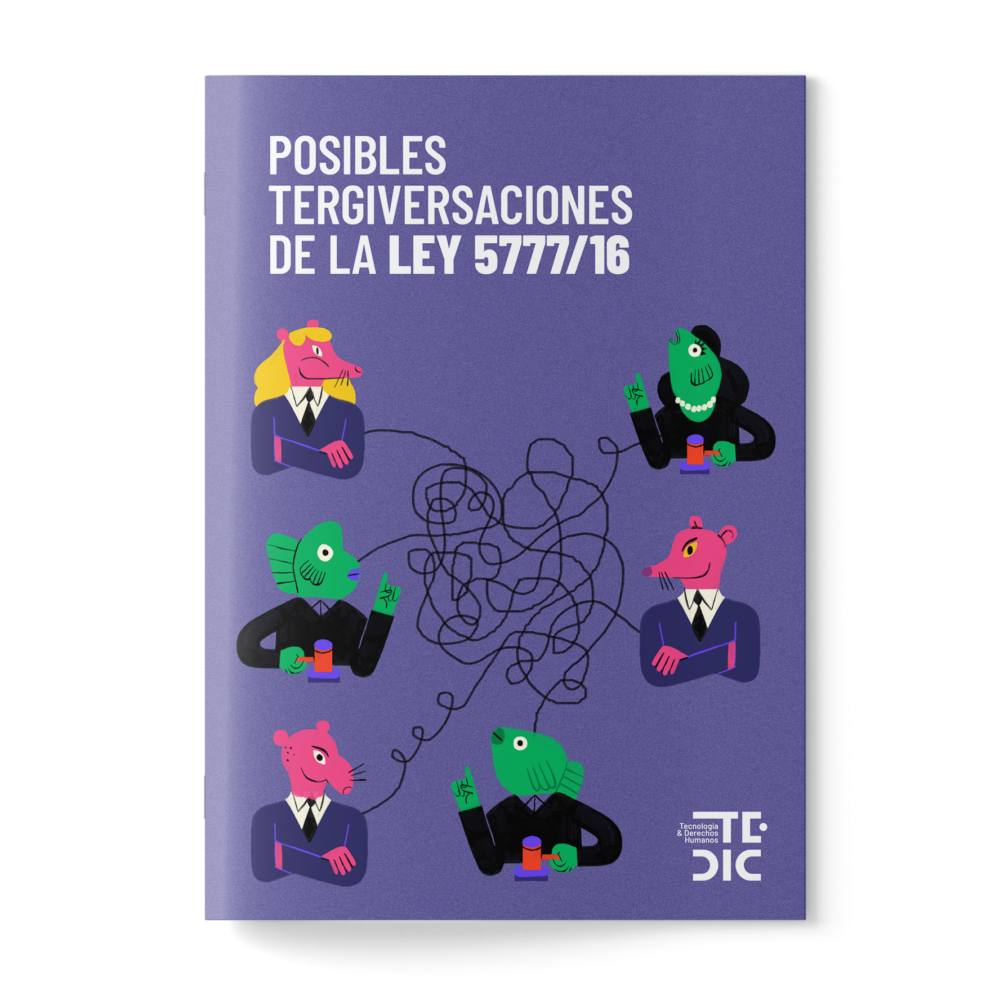
In Paraguay, some judges are using Law 5777, which aims to provide comprehensive protection for women against all forms of violence, to censor journalists and communicators. At TEDIC, we previously took a stand on this trend in February of this year, and in May, we launched an investigation that explored six cases involving public figures and the misapplication of Law 5777/16. Of these six cases, two had outcomes favoring freedom of expression, while the other four resulted in rulings against it. One of these cases is Christian Chena vs. Gisele Mousques, where a questionable interpretation of Law 5777/16 led to judicial restrictions against Chena, a shareholder of the media outlet RDN, who was prohibited from mentioning Mousques in digital media. This misapplication of the law prompted us to present an amicus curiae, proposing reconsiderations for the Chena case and advocating for a fair balance between protection against violence and freedom of expression.
What is an amicus curiae? Why and for what purpose is it presented?
An amicus curiae is a Latin expression meaning “friend of the court.” In the legal realm, it refers to a person or group that, without being directly involved in a case, offers information, expertise, or an additional perspective that can help court members make a more informed decision. In this context, TEDIC, along with the Center for Studies on Freedom of Expression (CELE) and the Wikimedia Foundation, presented an amicus curiae before the Constitutional Court of the Paraguayan Judiciary to provide additional perspective on the Christian Chena case. We believe that the interpretation of Law 5777/16 in Chena’s case is incorrect and dangerous, jeopardizing the freedom of expression of journalists and communicators in Paraguay. Therefore, we decided to intervene by presenting an amicus curiae that offers a well-founded view to the court.
The lack of rigorous analysis from a human rights perspective raises serious concerns about the respect for this fundamental right in Paraguay. The situation is particularly grave because gender violence is one of the most serious problems our communities face, and the existence of adequate legal frameworks to combat this phenomenon is essential. The abuse of these legal frameworks for spurious purposes constitutes a double problem: it affects freedom of expression and weakens necessary laws, making them vulnerable to opportunistic and conservative attacks.
New Perspective Before the Court
In our amicus curiae, we presented several key points, previously developed in our position statement, including:
- Defense of Freedom of Expression: We argue that the application of Law 5777/16 must be balanced with the right to freedom of expression, especially in cases involving public figures, such as Gisele Mousques.
- Standards of Responsibility According to the Inter-American Human Rights System: We emphasize that the American Convention on Human Rights allows limitations on the right to freedom of expression only when they are explicitly set out in the law and are necessary in a democratic society.
- The Effect of “Passage of Time” on Freedom of Expression: We point out that the permanence of information on the Internet should not be an excuse to censor or limit freedom of expression, and that past expressions remain of public interest.
- Prohibition of Prior Censorship: We highlight that any measure that imposes the abstention from exercising freedom of expression constitutes a form of prior censorship, prohibited by the American Convention on Human Rights.
Therefore, we ask the Court:
- To reject in limine the action of unconstitutionality promoted by Gisele Zuni Mousques.
- To apply the tripartite test to consider whether the ruling against the journalist and the RDN media outlet complies with the principles of legality, imperative purpose, necessity, adequacy, and proportionality of the measure.
- To recognize the special protection of freedom of expression in the context of public debate on matters of public interest.
- To urge the plaintiff to make use of their right of rectification before resorting to measures that restrict freedom of expression.
- To consider the doctrine of civil liability inapplicable for the mere repetition of past information without conclusive evidence of malice or gross negligence.
- To clarify the interpretations of Laws 5777/16 and 1600/00 to prevent them from being used as tools to limit freedom of expression.
With this presentation, we aim to highlight, both locally and regionally, the importance of a fair balance between protection against violence and freedom of expression, ensuring that in a national context hostile to freedom of expression and the press, our laws are applied in a way that does not undermine the fundamental rights of journalists and communicators in Paraguay. We firmly believe that this intervention can help establish important precedents for future cases, protecting both the victims of gender-based violence and those who exercise their right to freedom of expression.
Learn more about our arguments and recommendations through our position statement or by downloading our research on the topic.

 Regarding the trends in the Antipyrawebs Observatory in 2023
Regarding the trends in the Antipyrawebs Observatory in 2023  [Research] Possible distortions of law 5777/16: Study of 6 legal cases
[Research] Possible distortions of law 5777/16: Study of 6 legal cases